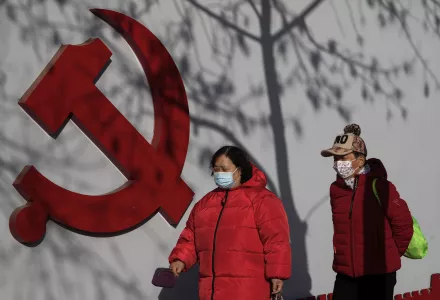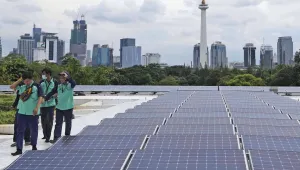
Beginning in the late 1970s, China's opening to global markets caused an explosion of optimism and trade. Economic interdependence with China, many said, was the pathway to peace and prosperity, in Asia and beyond. Ties between American businesses and the Chinese economy anchored the relationship between the United States and China and were seen as evidence that China was being "pacified by globalization." Some observers confidently declared that the Chinese Communist Party (CCP) was "playing our game" in the neoliberal world economy. Immanuel Kant's assertion that "the spirit of trade cannot coexist with war" became received wisdom once more.
That has changed in the past 15 years or so. Decades of policy that encouraged cross-border flows have been rapidly reversed as the United States and other nations have erected unprecedented barriers to Chinese capital and trade flows in the name of national security.
This shift was driven largely by the CCP's changes to China's model of political economy, which began to appear incompatible with global capitalism. In the wake of the global financial crisis of 2008, China began to move away from the market-based approach that had shaped its economic policies for three decades, and toward something that might be termed "party-state capitalism," which involves a high degree of CP control over strategic sectors of the economy. This has led to significant changes in the U.S.-Chinese economic relationship, as both sides have made efforts to secure supply chains, screen inward and outward capital flows, diminish the power of global firms, and reorganize alliances to protect against economic coercion. The effects of this dynamic go well beyond the U.S.-Chinese relationship: the economic arms race between Washington and Beijing has changed the shape of global capitalism.
Margaret M. Pearson, Meg Rithmire, and Kellee S. Tsai, “The New China Shock: How Beijing’s Party-State Capitalism is Changing the Global Economy,” Foreign Affairs, December 8, 2022, https://www.foreignaffairs.com/china/new-china-shock.
The full text of this publication is available via Foreign Affairs.




